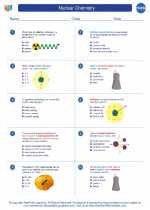Zygote: Definition and Formation
A zygote is the initial cell that is formed when two gametes (sperm and egg) fuse during fertilization. This cell is the beginning of a new organism and contains a complete set of chromosomes, half from the mother and half from the father.
Formation of Zygote
The formation of a zygote occurs through the process of fertilization. When a sperm cell successfully penetrates the egg cell, their genetic material combines to form a zygote. This process marks the beginning of the development of a new organism.
Key Concepts to Understand
- Fertilization: The fusion of a sperm cell with an egg cell to form a zygote.
- Genetic Material: The zygote contains a complete set of genetic material, which determines the characteristics and traits of the new organism.
- Embryonic Development: After the formation of the zygote, it undergoes multiple cell divisions and develops into an embryo, eventually leading to the formation of a new individual.
Study Guide
When studying the topic of zygote, it's important to focus on the following key areas:
- Understanding the process of fertilization and the fusion of gametes
- Identifying the components of a zygote and the genetic material it contains
- Exploring the significance of the zygote in the development of a new organism
- Connecting the formation of the zygote to subsequent stages of embryonic development
Additionally, it's beneficial to review related topics such as cell division, genetic inheritance, and the role of DNA in determining traits. This will provide a comprehensive understanding of the formation and significance of the zygote in the context of biological development.
With a thorough grasp of these concepts, you'll be well-equipped to comprehend the importance of the zygote in the process of reproduction and the creation of new life.
.◂Chemistry Worksheets and Study Guides High School. Nuclear Chemistry

 Worksheet/Answer key
Worksheet/Answer key
 Worksheet/Answer key
Worksheet/Answer key
